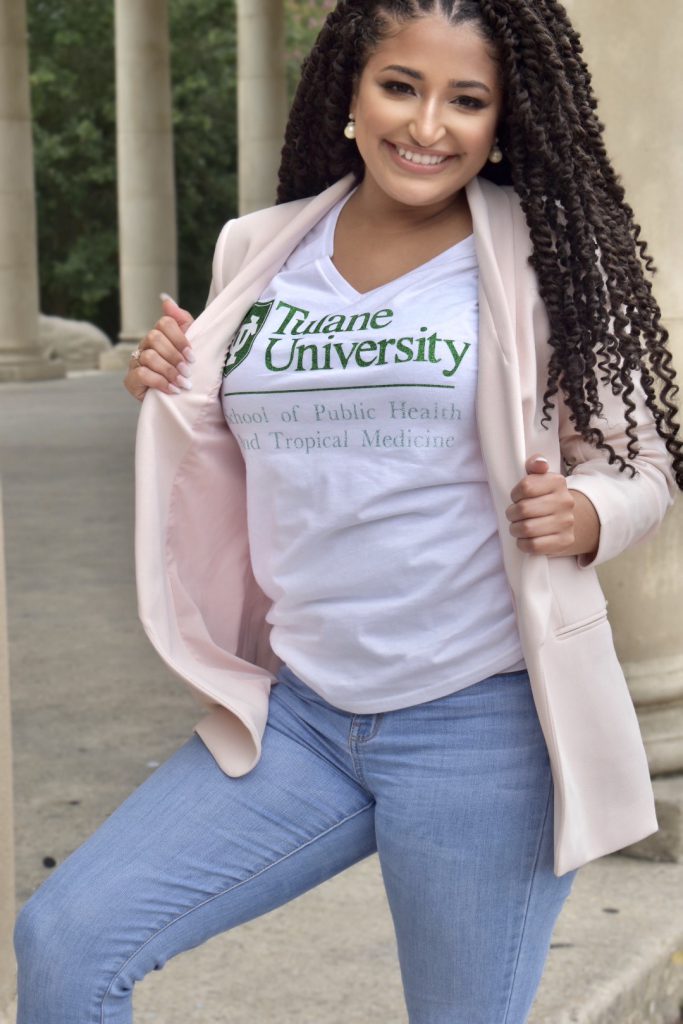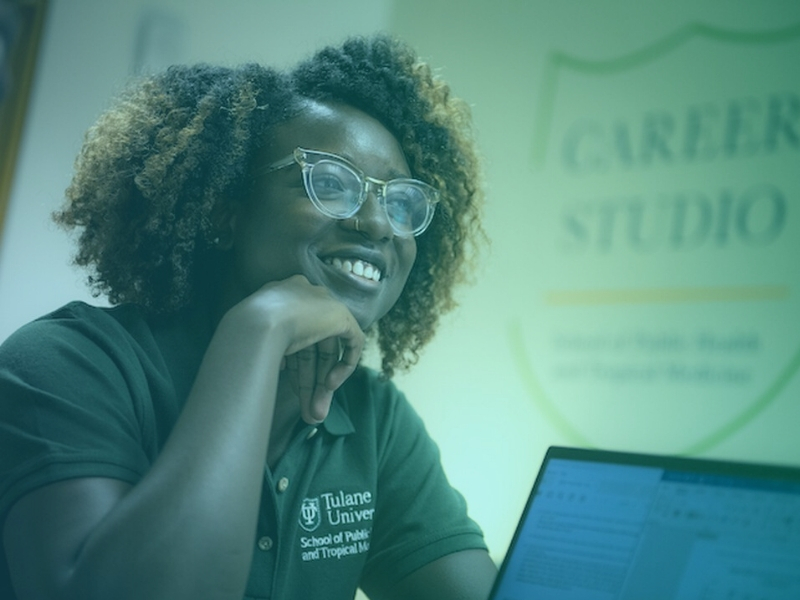Over the past nine months, students around the world have shifted to online learning to continue their education in the midst of COVID-19. For one subset of students, this shift has been business as usual – students already participating in programs like the Online MPH at Tulane University School of Public Health and Tropical Medicine.
This program in Community Health Sciences started in fall of 2019, joining the school’s four existing online programs in Environmental Health Sciences. Tulane was the first school of public health to offer online education almost 30 years ago.
The new Online MPH has grown exponentially over the course of the year, this semester welcoming more than 130 new students.
Associate Dean for Online Programs Dr. Alicia Battle came to Tulane with the goal of making the Online MPH stand out among peer programs.
“What we did that’s very different than what our competitors in this market are doing is we have added the personal touch,” she says.
Noodle Partners, an online program management firm, helped Tulane to get the Online MPH into market quickly. According to Battle, many similar programs leave the recruitment and program management up to providers like Noodle. “It’s kind of detached and removed from what’s happening with the program or school. We’ve been doing it differently,” she says.
The difference starts with training, and Battle herself has led the training of enrollment advisors, ensuring that they understand not only the program but also the field of public health and the kinds of jobs and careers students can achieve with a public health degree. She and her staff are also always ready and available to speak directly to prospective students about the program.
“What we did that’s very different than what our competitors in this market are doing is we have added the personal touch.”
Dr. Alicia Battle
Battle along with Program Director Kathy Carneiro and Program Manager Lacey Allen participate in every informational webinar. “Prospective students have an opportunity to ask the program manager, the director, and the associate dean questions, comments, or concerns. Because I’m also a faculty member, I can speak to what classes are like and what they will be learning. It’s not an esoteric kind of surface conversation. It’s an actual deeper dive where our students understand, ‘oh, wow, Tulane really cares.”
Being student centered continues as students enroll with monthly virtual happy hours, regular “On the Front Lines” webinars with public health professionals, and a real classroom atmosphere, just in a virtual setting.
To help ensure student success, the program employs an analytics coach, Dr. Lindesy Ho, who provides additional guidance for students in the biostatistics and epidemiology courses.
“If you don’t have a propensity for the math, you might have a tough time getting through biostatistics and epidemiology,” says Battle. By hiring a clinical faculty member whose sole focus is to coach students through these courses, the school has been able to get students over that hurdle and find success. “And this is something that no other institution is doing,” she adds.
“He definitely puts it in terms to where you understand it,” says student Leah Cross. “When he breaks it down, it’s like, ‘Okay, I can do this.’ I’m eternally grateful for his help.”
The program also offers two different mentorship programs: Peer-to-peer mentoring and professional mentoring. The first pairs students with a peer further along in their online public health education who “walks them through the ins and outs of the challenges that are unique to online students,” says Allen. Professional mentors are working practitioners matched to the student based on their interests.
Online courses, in-person experiences
Another way Tulane’s Online MPH sets itself apart from its peers are the program’s academic residencies. These intensive, in-person experiences are designed to give students the opportunity to network in person with peers, faculty and public health professionals. The residencies are centered around important topics in the field, and every student is required to attend at least one during the course of their studies.
The pandemic, of course, has impacted those plans. The first residency scheduled for this past August in New Orleans was canceled, and the spring residency will move online. Allen, who coordinates the residencies, says it will be similar to three-day online conference with speakers, virtual group work, and tabletop exercises, and will focus on Chicago, the opioid crisis, and gun violence.
She’s currently working on a summer residency in Ireland based on the Troubles and domestic terrorism but indicates that it will also move online if necessary.
Targeted recruitment and online expansion
One of the areas of growth Battle sees for the program is the recruitment of more African American males. She says it’s not a question of not getting qualified applications – it’s that Black men are simply not applying to public health programs in large numbers. She’s entered into a partnership with Alpha Phi Alpha, an intercollegiate fraternity for African American men, to promote Tulane’s Online MPH across the organization’s 680 chapters in the U.S. and around the world.
The school also hopes to repeat its success by launching an online Master of Health Administration program in Fall 2021. Longer term, Battle would like to add a school-wide online Doctor of Public Health (DrPH) program as well as certificate programs, professional development opportunities, and an online diploma course in tropical medicine.
“I think it’s the mindset that makes the difference,” concludes Battle. “It’s not that you’re an appendage over here. We treat all of our online students the same way we treat ground students.”
–By Dee Boling

Student Spotlight: Leah Cross
Leah Cross is in her first semester with the Online MPH program, but she’s already sold on it.
“It’s a phenomenal program,” she says. “You feel like you’re welcome. You’re away from the school because it’s an online program, but it’s also like a family. I’ve really gotten to know the people in my cohort. The students are great; they’re from everywhere.”
Cross earned her Bachelor of Science in Kinesiology from Southeastern Louisiana University, and originally heard about the program from a friend who knew she was interested in a public health graduate degree.
Initially she was intimidated by the institution’s long history and prestige, but realized the program aligned well with her goals.
“This is a perfect fit for me,” she says. “It’s not necessarily fast-paced,” she reports, “but it’s a lot of work. You have to be able to have time management skills from the beginning.”
“Studying is key,” she adds.
Cross hopes to use her degree to make an impact in healthcare reform at the state or national level. “I was thinking about going to work on Capitol Hill my first two, three years after graduate school and really do some work with public policy. I feel like we have some policies in place now that are great, but there’s so much more work to be done.”
“We’re learning so much and it’s just so interesting to feel like you’re a part of something. They always make us feel like we’re welcome and that we’re like a stepchild, you know. It’s so amazing to feel like that when you’re in an online program.”

